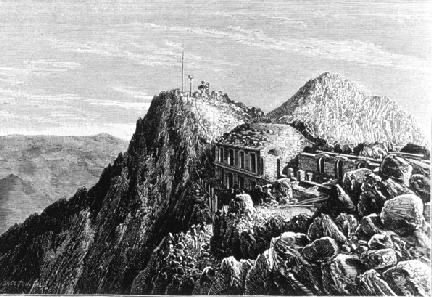http://en.wikipedia.org/wiki/Ganymede_%28mythology%29 wrote:
<<In Greek mythology, Ganymede, or Ganymedes (Greek: Γανυμήδης, Ganymēdēs), is a divine hero whose homeland was Troy. He was a prince, son of the eponymous Tros of Dardania and of Callirrhoe, and brother of Ilus and Assaracus. Homer describes Ganymede as the most beautiful of mortals, which led the gods, or according to some, Zeus in the form of an eagle, to abduct him for service as cup-bearer in Olympus.
Ganymede was abducted by Zeus from Mount Ida in Phrygia, the setting for more than one myth element bearing on the early mythic history of Troy. Ganymede was there, passing the time of exile many heroes undergo in their youth, by tending a flock of sheep or, alternatively, during the chthonic or rustic aspect of his education, while gathering among his friends and tutors. Zeus, either sending an eagle or turning himself to an eagle transported Ganymede to Mount Olympus. Later, Zeus compensated Ganymede's father by the gift of fine horses, "the same that carry the immortals": in the Iliad, the Achaean Diomedes is keen to capture the horses of Aeneas:
"They are of the stock that great Jove gave to Tros in payment for his son Ganymede, and are the finest that live and move under the sun."
- "Here the Phrygian hunter is borne aloft on tawny wings, Gargara’s range sinks downwards as he rises, and Troy grows dim beneath him; sadly stand his comrades; vainly the hounds weary their throats with barking, pursue his shadow or bay at the clouds."
In Olympus, Zeus granted him eternal youth and immortality and the office of cupbearer to the gods, supplanting Hebe. J.A.Edm. Veckenstedt (Ganymedes, Libau, 1881) endeavoured to prove that Ganymede is the genesis of the intoxicating drink mead, whose original home was Phrygia.
Zeus later put Ganymede in the sky as the constellation Aquarius, which is still associated with that of the Eagle (Aquila). However, his name would also be given by modern astronomy to one of the moons of Jupiter, the planet that was named after Zeus's Roman counterpart. Ganymede was afterwards also regarded as the genius of the fountains of the Nile, the life-giving and fertilizing river. Thus the divinity that distributed drink to the gods in heaven became the genius who presided over the due supply of water on earth.
In Shakespeare's As You Like It (1599), a comedy of mistaken identity in the magical setting of the Forest of Arden, Celia, dressed as a shepherdess, becomes "Aliena" (Latin "stranger", Ganymede's sister) and Rosalind, because she is "more than common tall", dresses up as a boy, Ganymede. She plays on her ambiguous charm to seduce Orlando, but also (involuntarily) the shepherdess Phebe. Thus behind the conventions of Elizabethan theater in its original setting, the young boy playing the girl Rosalind dresses up as a boy and is then courted by another boy playing Phebe.>>
 Jupiter Near Opposition
Jupiter Near Opposition





